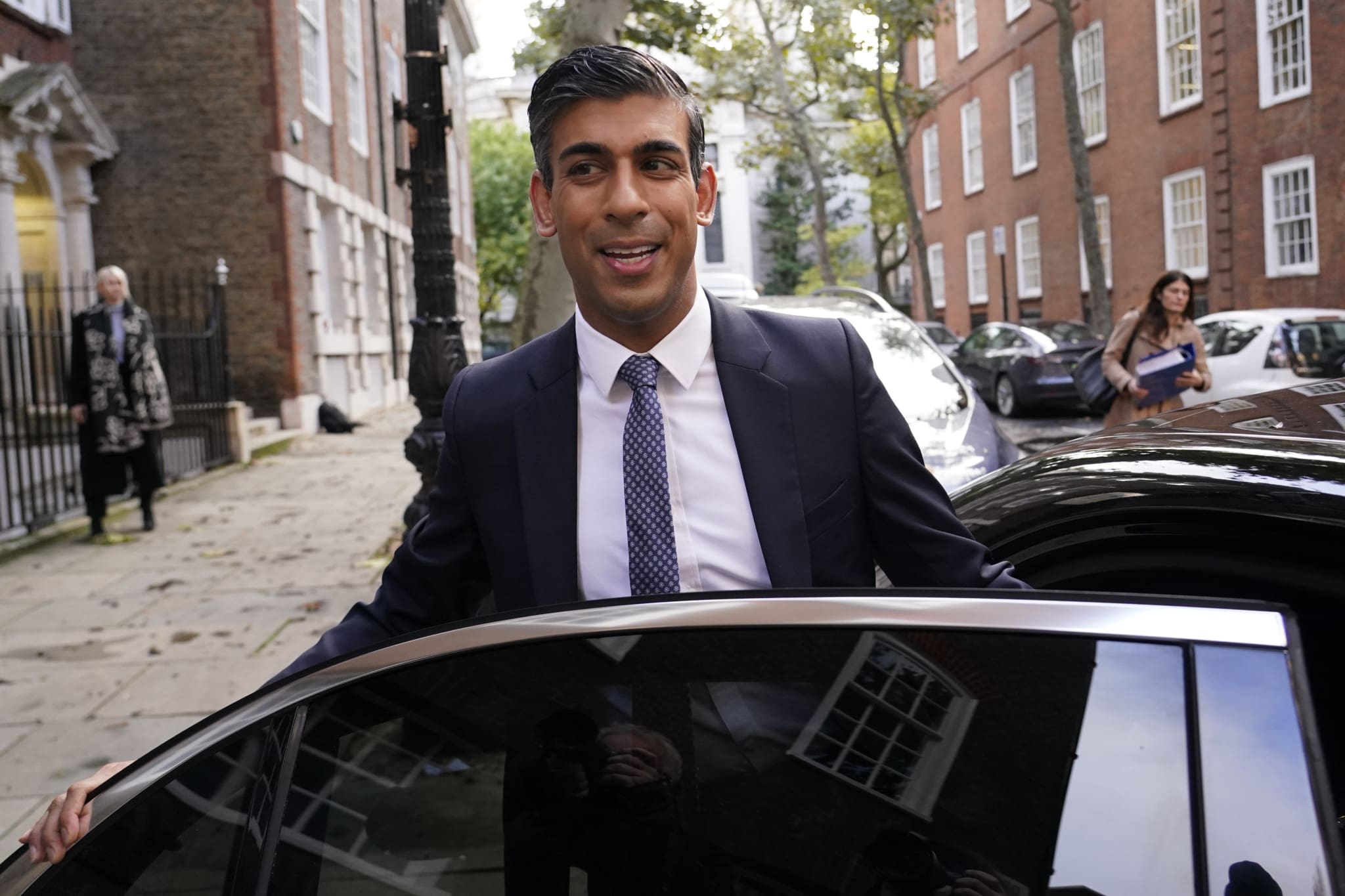Rishi Sunak will become the U.K.’s next prime minister after becoming the only candidate to secure enough nominations in the first stage of the Conservative party leadership contest.
Announcing the result on Monday afternoon, chair of the 1922 committee Sir Graham Brady revealed that former chancellor Rishi Sunak was the only candidate to have surpassed the high eligibility threshold of 100 nominations set by the Conservative party board.
Just minutes before the 2:00 p.m. announcement, Penny Mordaunt tweeted that she had conceded the race and would give Sunak her “full support.”
Former U.K. leader Boris Johnson confirmed he would not be standing for the leadership late on Sunday evening, despite claiming to have surpassed the threshold of 100 nominations.
Johnson claimed that while he believed he was “well placed to deliver a Conservative victory in 2024,” and confirmed that he had acquired 102 nominations, he explained that “in the course of the last days I have sadly come to the conclusion that [running] would simply not be the right thing to do.”
With his primary leadership rival Sunak acquiring the public nominations of more than half the Conservative parliamentary party, Johnson admitted that “you can’t govern effectively unless you have a united party in parliament.”
Johnson supporters told U.K. media that talks had taken place between the former prime minister and his leadership rivals to see if there was a way for them to unite and govern in the national interest, however late-night talks came to no avail, according to reports.
Penny Mordaunt remained robust on Monday morning, with her supporters insisting she was close to acquiring the nominations required to stand — this despite only having 30 nominations publicly.
As her allies scurried on Monday morning to convert Johnson supporters, using the democratic argument that it would be just to give the party membership a choice, insiders to her leadership campaign admitted it would be “50/50” whether or not she would reach the threshold by Monday’s 2:00 p.m. deadline.
As it transpired, Mordaunt failed to receive sufficient support to take the contest to a vote among the Conservative membership.
Despite his popular support among Conservative parliamentarians, Sunak remains a divisive figure in the party, with many Johnson loyalists and considerable swathes of the party’s grassroots members blaming him for helping to topple Johnson’s administration in July.
His resignation as chancellor paved the way for a domino effect of ministerial resignations which left Johnson’s position as leader untenable and eventually prompted his own resignation.
Polling suggested that had the leadership contest resulted in either Boris Johnson or Penny Mordaunt reaching the parliamentary threshold required, and the vote subsequently going to the Tory membership, Sunak would have lost to either of his colleagues.
Some Johnson loyalists have cast doubt on the existence of a mandate for either Sunak or Mordaunt to govern and have called for a general election.
Key Johnson ally Nadine Dorries tweeted on Sunday evening the avoidance of a general election would “now be impossible,” insisting it was only Boris who “would have won a members’ vote” and “already had a mandate from the people” following his historic electoral victory in 2019.
Similarly, Christopher Chope MP told BBC Radio 4’s ‘Today’ program on Monday morning that the Conservatives now have “a parliamentary party that is completely riven and ungovernable,” and insisted that a general election is “the only answer” otherwise there will be endless rebellions.
The Conservative government does not need to call a general election until 2024 under existing U.K. legislation, and given its dire popularity in current opinion polls, with some estimating the party to be more than 30 percentage points behind Sir Keir Starmer’s Labour Party, it is unlikely the new prime minister will heed the call for a national vote any time soon.






